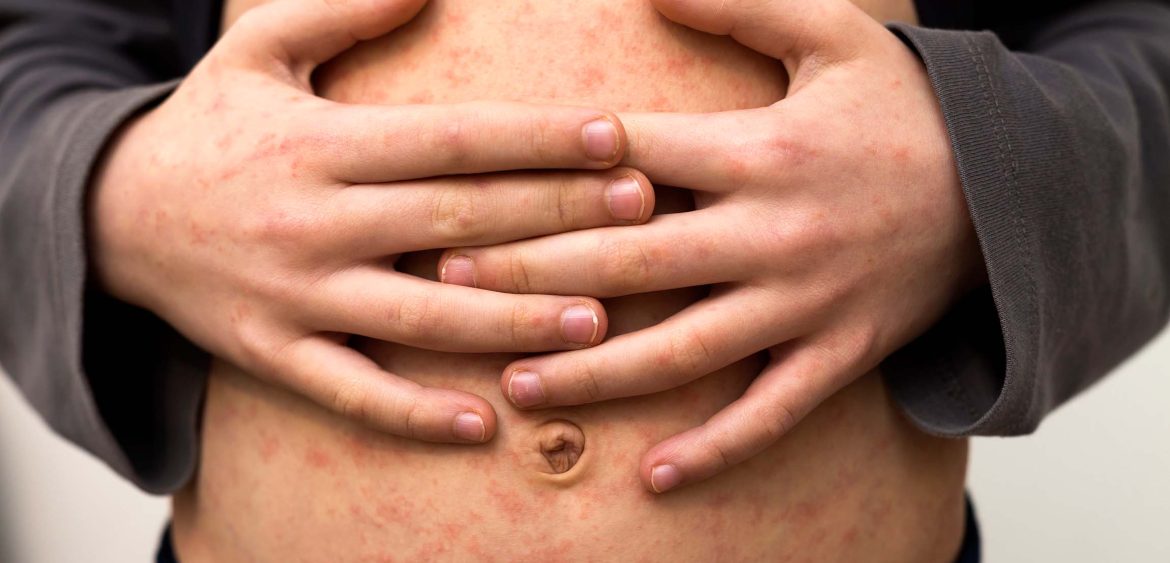Recent measles outbreaks have many families concerned. Most of the people who have
gotten sick were not vaccinated against measles. This is a stark reminder of the
importance of making sure your children are fully vaccinated. Here are answers to
questions that many parents have about measles outbreak
I thought measles were a mild illness, so why the alarm now?
Measles was once a common childhood disease and almost an expected part of
growing up. While most children recovered from the measles without problems, many
others did not. In some children, the infection caused pneumonia and in a few,
encephalitis (infection of the brain) and even death.
Before the measles vaccination was available in the U.S., every year an average of
450 people died from measles; most of them were previously healthy children.
Thanks to the success of the measles vaccine, we are now able to protect children from
the measles. However, in recent years some parents have refused or delayed
vaccinating their children out of fear or misinformation about the safety of measles
vaccination. This means there are more unvaccinated children, teens and adults in our
communities.
How is measles spread?
The measles virus spreads easily through the air when an infected person sneezes or
coughs and someone nearby inhales the infected droplets. It can also be transmitted by
direct contact with fluids from the nose or mouth of an infected person.
How long can the measles virus live on surfaces?
Measles are one of the most contagious infectious diseases known. The virus can live
for up to 2 hours in the air where infected people have coughed or sneezed, or on
surfaces they may have touched. As a result, anyone in crowded, public spaces may
come into contact with measles.
What are the signs & symptoms of measles?
The most recognizable measles symptom is a very high fever accompanied by a red
or brownish blotchy rash, although this is not the only symptom.
Before the rash appears, children with measles develop cold-like symptoms, including:
- Cough
- Runny nose
- Fever
- Red, watery eyes
These symptoms tend to get worse during the first 1 to 3 days of the illness.
When do children need to get the measles vaccine?
The American Academy of Pediatrics (AAP), the Centers for Disease Control and
Prevention, and the American Academy of Family Physicians all recommend children
receive the measles, mumps and rubella vaccine-MMR at age 12-15 months, and again
at 4-6 years. Children can receive the second dose earlier if it is at least 28 days after
the first dose.
There is a combination vaccine called MMRV that contains both chickenpox and MMR
vaccines. MMRV is an option for some children 12 months through 12 years of age.
What if my baby is too young for the measles vaccine?
High immunization rates in a community protects those who are too young to be
vaccinated, including infants under 12 months of age. These infants are at the highest
risk of serious illness, hospitalization, and death due to measles. Find information on vaccines for infants aged 6-12 months old during an outbreak or before international travel to a location with an active measles outbreak.
Is the measles vaccine safe?
Yes. Occasional side effects of the measles vaccine include fever, tenderness at the
injection site and rash. Rare side effects include a temporary decrease in blood
platelets. The measles vaccine does not cause Autism.
How long does the measles vaccine provide protection?
The measles vaccine is very effective in protecting against measles. However, no
vaccine is 100% protective so very rarely, people who are vaccinated may develop
measles. About 95 of every 100 people will be protected after getting one dose of the
MMR vaccine. Two doses of MMR protect 97-99 for every 100 people.
I’m not sure if I’ve received measles vaccine. Do I need a booster?
If you are not sure if you or your children have been fully vaccinated against measles,
talk with your doctor to see if anyone in your family needs to be vaccinated. There is no
risk to receiving measles vaccine if you have been immunized before. Measles is a live
vaccine so children with immune problems or receiving medications that suppress the
immune system should not receive the measles vaccine. Your pediatrician is your best
source of advice on vaccinations.

